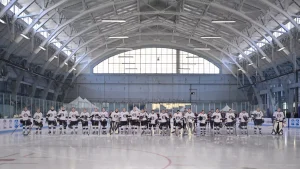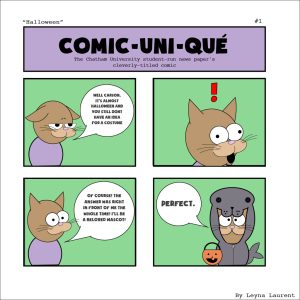Racial slurs and foul language don’t belong in Chatham University classrooms
December 12, 2019
A profound benefit of being a student of history or literature is the studying of eras past, especially via the written word. Documents, firsthand accounts and fictional pieces give students the ability to insert themselves into any such period they desire. College students have the added benefit of a stronger immersion, often viewing especially poignant and, at times, brutal literature that details the struggles various peoples endured across the global stage.
With such immersion comes periodical language and outdated terms rooted in prejudice and bigotry. Therefore, classrooms should treat such situations with the utmost care, respect those students whom it affects and discuss measures for dealing with it prior.
As a white cisgender student here on campus, I acknowledge my privilege in this discussion. While I experience disgust and discomfort at hearing derogatory language directed toward my friends, I struggle to put into words how I imagine their experience to be. I aim not to speak over their voices or enforce my own agenda but add to the dialogue in support. I address my peers here at Chatham University who enjoy the same privileges that I do.
In reference to those who hold privileges like me, derogatory language in and outside of academic settings is inexcusable. Paraphrasing what so-and-so racist said or using offensive diction creates an incredible negative impact on students of color, students of the LGBT+ community, students of certain religious groups and others.
It goes without saying that, in many cases, the use of slurs and/or deprecating language induces trauma and pain within those whom the words target. They hurt. They seek to dehumanize, delegitimize and belittle their targets for the oppressor’s own sense of superiority.
The argument exists that since some minority groups embrace the very words designed by majority oppressors to hurt them, the meaning of such speech would be diminished (if not eradicated) if everyone — including the oppressors — could say the words, too. The right to use derogatory language does not and never will reach those who created it. It is not our (i.e. white, cisgender) place to make that claim and it never will be. We should come to terms with that as soon as possible.
Therefore, faculty and their students must be properly educated to carry out academic discussions should they include any offensive terms. It remains important to note that Chatham entertains a predominantly white student population.
Furthermore, the literary and historical integrity of a text should not be deemed compromised by the ability, or lack thereof, to verbalize a racial slur. White students are capable of reading it should it appear in a text, and it is not the job of other white students/faculty to decide whether its mutually acceptable and appropriate to speak it aloud. It demands and deserves more diverse discussion than that.
If Chatham students witness any individual from a place of privilege utilizing derogatory language, whether to directly attack someone else or to vitalize their in-class discussion, do not let it go unnoticed. Be aware, empathize and look to those who have been hurt by the language with a mind free of prejudice. It’s the absolute least we can do as a campus community that prides itself on being inclusive and diverse.







